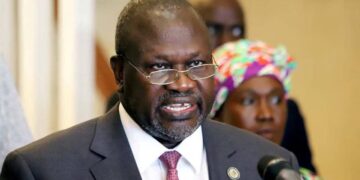By John Ikani
The digital asset landscape is recording a boom, with a staggering 34% increase in global crypto ownership reported in 2024.
This translates to 562 million people worldwide now holding crypto assets, representing a significant 6.8% of the global population.
A recent report by Triple-A sheds light on this expanding crypto market, offering a breakdown of ownership trends by region and demographics.
Asia takes the lead with a 21.8% surge, boasting 326.8 million crypto owners, followed closely by North America’s impressive 38.6% rise to 72.2 million owners.
South America witnessed the most dramatic growth, with a remarkable 116.5% increase, pushing ownership figures from 25.5 million to 55.2 million.
Europe and Africa also saw significant growth. Europe climbed 60.3%, reaching 49.2 million owners, while Africa experienced a more modest but steady 8.5% increase, bringing ownership to 43.5 million.
Oceania’s crypto adoption doubled, jumping from 1.4 million to 3.0 million owners.
The Triple-A report delves deeper, revealing the age demographics of global crypto owners. Millennials (25-34 years old) dominate the market, accounting for a substantial 34% of all owners. Gen Z (35-44 years old) follows closely at 31%.
Experts attribute this surge in crypto ownership to increased regulatory clarity from various countries’ financial authorities.
This fosters market stability and inspires investor confidence. The Monetary Authority of Singapore (MAS) and the European Union are prime examples of such regulatory bodies.
For its data collection methodology, Triple-A employed a meticulous approach.
They utilized a combination of Country Weighted Scoring, Outlier Research, and Primary Data Collection, ensuring the most comprehensive and accurate statistics possible.
Key Takeaways:
- A gender gap persists in global crypto ownership, with 61% of owners being male and 39% female.
- According to Forbes, Nigeria leads Africa in crypto adoption, with an estimated 47% of its population (22 million people) owning crypto. This high percentage places Nigeria 11th globally in 2022, surpassing Kenya (ranked 19th).
- Regulatory uncertainties remain a major hurdle for broader crypto adoption in Africa. A recent example is the ongoing conflict between Nigerian authorities and Binance, the world’s largest crypto exchange. This dispute led to the detainment of Binance executives. Additionally, the Nigerian government has cracked down on peer-to-peer cryptocurrency exchanges, accusing them of manipulating the local currency.




































